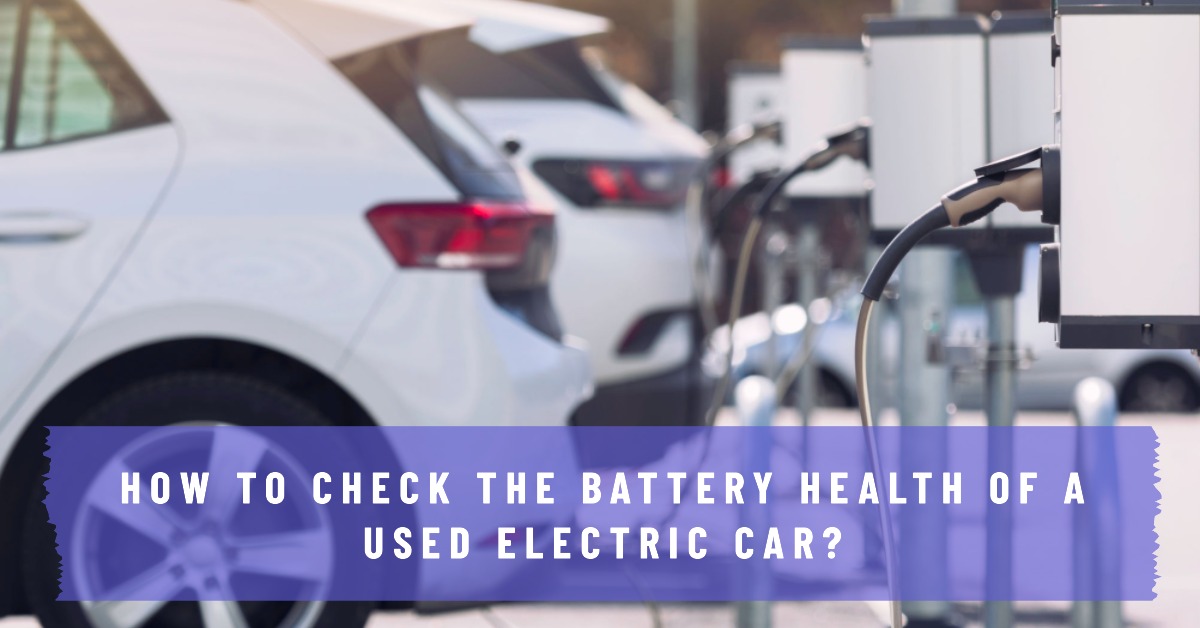How to Check the Battery Health of a Used Electric Car?
When buying a used electric car, it’s important to check the health of the battery. A good battery ensures the car runs well and lasts longer.
Check out these tips by one of the best used car dealers in Surrey to help you assess the condition of the battery.
Check the Battery’s Age
- The battery’s age affects its performance.
- Electric car batteries usually last 8-10 years.
- Older batteries lose their ability to hold charge.
- A battery that’s too old may need replacement soon.
- Ask the seller for the manufacturing date.
- Check the car’s registration documents for this information.
- Some cars show the battery age in the settings.
- An older battery may have reduced driving range.
Ask for Battery Warranty Information
- Most electric car batteries come with a warranty.
- The warranty covers repair or replacement if needed.
- Ask the seller about the battery warranty.
- Find out how long the warranty lasts.
- Check if there is any warranty left.
- Some warranties cover up to 8 years or more.
- The warranty may cover a certain mileage limit.
- A longer warranty means better protection.
Review the State of Charge (SOC)
- State of Charge (SOC) shows the battery’s current charge level.
- A healthy battery should hold 80% of its original capacity.
- A low SOC could mean the battery is aging.
- Check if the car’s display shows the SOC.
- Some cars have an app to check the SOC.
- A full charge should last for a good distance.
- If the SOC is too low, the battery may need repair.
- The SOC can also indicate how quickly the battery discharges.
Check for Battery Life Percentage
- Some cars show the battery life percentage.
- This tells you how much of the original battery capacity is left.
- A new battery starts at 100% life.
- Over time, the percentage decreases as the battery ages.
- A healthy battery should have at least 80% capacity.
- A lower percentage means the battery is aging or worn out.
- Check the car’s settings or app to find this information.
- A drop in battery life percentage shows it’s losing capacity.
Look for Battery Health Reports
- Some electric car makers provide battery health reports.
- These reports show the battery’s condition over time.
- Ask the seller for any available health reports.
- The report may include details like charging history and capacity.
- It can help you understand how well the battery has been maintained.
- A good report shows the battery is in good shape.
- If no report is available, consider having the battery tested.
- Some cars let you check the battery health in the car’s settings.
Use the Odometer Reading
- The odometer shows the car’s total mileage.
- Higher mileage can mean more battery use.
- The more the car is driven, the more the battery wears down.
- Check the mileage on the car’s dashboard.
- Compare the mileage with the car’s age.
- A low-mileage car may have a healthier battery.
- High-mileage cars may have more battery wear.
- Regular driving wears out the battery slowly over time.
Test Drive the Car
- Take the car for a test drive before buying.
- Pay attention to how the battery works.
- Check how fast it charges when you drive.
- See how far you can drive on a full charge.
- Listen for any strange noises from the battery or motor.
- Watch for any warning lights on the dashboard.
- Make sure the car holds its charge well during the drive.
- Test how the car performs on different types of roads.
- A good test drive can reveal battery problems.
Check for Any Warning Lights
- Check the dashboard for warning lights.
- Warning lights can signal battery problems.
- Look for a battery symbol or check engine light.
- A warning light might mean the battery is failing.
- If any lights are on, ask the seller for details.
- Some cars have battery health warning lights.
- Don’t ignore warning lights, even if they seem minor.
- If the lights stay on after starting the car, it’s a concern.
- Ask if the car was checked for issues before selling.
Ask About Charging History
- Ask the seller about the car’s charging history.
- Find out if the battery was charged regularly or rarely.
- Frequent fast charging can damage the battery.
- Slow, regular charging is better for the battery’s health.
- Ask if the car was ever overcharged.
- Overcharging can shorten the battery life.
- Some electric cars have a history log for charging.
- A good charging history means the battery is well cared for.
- Check if the car was plugged in often for long periods.
Consult a Professional
- Consider having a professional inspect the car.
- Always buy from reputed used car dealers in British Columbia.
- A mechanic or EV specialist can check the battery’s health.
- They can use special tools to test the battery.
- A professional can identify hidden battery problems.
- This helps you avoid buying a car with serious issues.
- The inspection can check for wear and charging problems.
- Professionals can also check if the battery is original.
- They might spot any damage that’s not visible.






